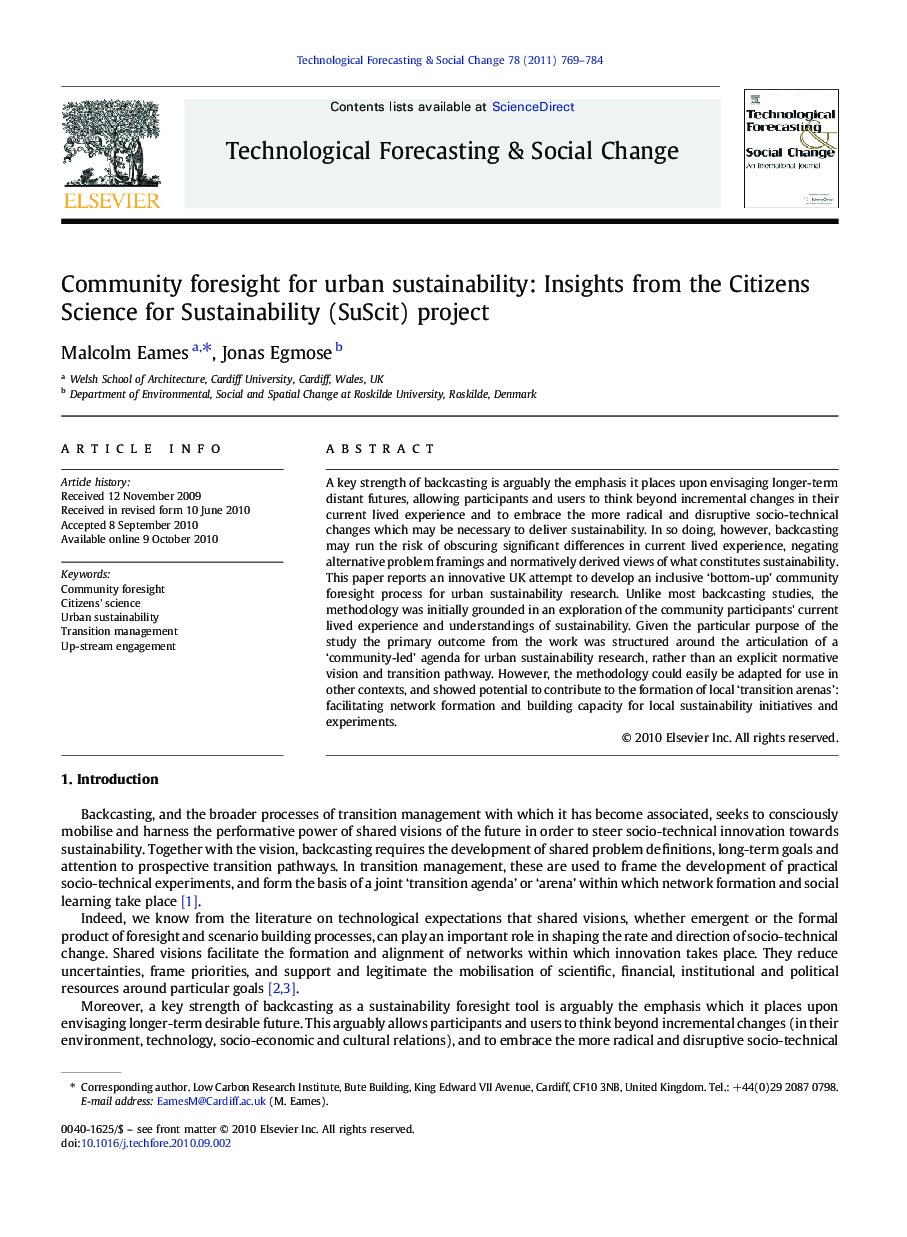| Article ID | Journal | Published Year | Pages | File Type |
|---|---|---|---|---|
| 896850 | Technological Forecasting and Social Change | 2011 | 16 Pages |
A key strength of backcasting is arguably the emphasis it places upon envisaging longer-term distant futures, allowing participants and users to think beyond incremental changes in their current lived experience and to embrace the more radical and disruptive socio-technical changes which may be necessary to deliver sustainability. In so doing, however, backcasting may run the risk of obscuring significant differences in current lived experience, negating alternative problem framings and normatively derived views of what constitutes sustainability. This paper reports an innovative UK attempt to develop an inclusive ‘bottom-up’ community foresight process for urban sustainability research. Unlike most backcasting studies, the methodology was initially grounded in an exploration of the community participants' current lived experience and understandings of sustainability. Given the particular purpose of the study the primary outcome from the work was structured around the articulation of a ‘community-led’ agenda for urban sustainability research, rather than an explicit normative vision and transition pathway. However, the methodology could easily be adapted for use in other contexts, and showed potential to contribute to the formation of local ‘transition arenas’: facilitating network formation and building capacity for local sustainability initiatives and experiments.
